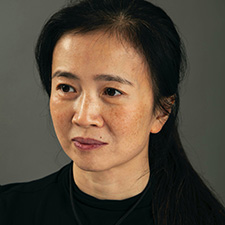Faculty Research Fellow

Linda Rui Feng (A&S East Asian Studies; Ph.D. 2008, Columbia University) is Associate Professor of East Asian Studies, and the author of City of Marvel and Transformation: Chang’an and Narratives of Experience in Tang Dynasty China (University of Hawai'i Press, 2015), which explores the conception of spatial knowledge and its role in the collective imagination. A cultural historian working frequently with materials ranging from maps and geographical treatises to collections of anecdotes and topical narratives, she is interested in the interconnections among cultural technologies, knowledge, writing, and the various senses. Recent forays into the history of food in East Asia has led her to focus on the sense of smell—often called the “mute sense”—as a modality of thinking about cultural history. Committed to the humanities as an interdisciplinary endeavor, she is also a fiction writer and the author of the novel, Swimming Back to Trout River.
What I'm working on: Concocting the “Heavenly Scent”: A Cultural History of Aromatics in Late Medieval China
Compared to other senses, the sense of smell is particularly challenging to capture or represent linguistically, and yet is undeniably powerful in its own way. This project aims to enhance our understanding of scent and its conferring of pleasure, by considering scents that were products of design, concoction, and curation. Focusing on late medieval China (ninth to twelfth centuries), I investigate how aromatics (xiang)—historically tied to both pleasure and health—were created and deployed as part of socially rooted sensory experiences. I am especially interested in how such experiences involving aromatics may have taken into account their volatile mobility and transportive potential: scents could waft across visual and physical barriers, transect hierarchies, and enable traveling between forms of existence such as the mundane and celestial/spectral.


